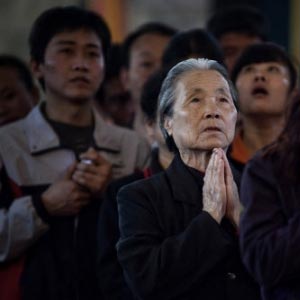Most people would agree that a church should be able to preach the tenets of its particular faith.
No government agency should have the authority to force an Assembly of God church to teach the Book of Mormon — or to insist that a Buddhist congregation be required to watch The Passion of the Christ.
By the same token, Christian schools are free to teach, if they wish, that evolution is a theory, the Apostle Paul taught homosexuality is a sin and that Jesus’ Great Commission instructs believers to share their faith worldwide.
“It follows,” then, writes Christian attorney Kevin Theriot in a guest column for the Baptist Press news service, “that a church should be able to employ only those teachers who actually agree with its religious principles and apply them to their lives.
“But this important aspect of religious freedom is now under attack, and its fate rests in the hands of the U.S. Supreme Court.
Theriot cites the case of a Lutheran church school in Redford, Mich., which is appealing a ruling by the U.S. Sixth Circuit Court of Appeals:
All the school teachers lead weekly chapel services, teach a 30-minute religion class four days per week, lead prayer three times per day, and teach a morning devotional. In fact, most of the teachers are commissioned as ministers. So when an issue came up that prompted the church to dismiss one of its teachers, the church naturally believed that a “ministerial exception” would apply.
Courts have long recognized the “ministerial exception,” which prohibits courts from getting involved in the relationship between a religious organization and its preachers. If a Southern Baptist pastor suddenly decides infant baptism is OK, his board of deacons has the right to fire him. If a Catholic priest announces that his congregation will be merging with the local Seventh-Day Adventists, the local bishop doesn have to worry about the courts intervening when the priest is recalled.
“This independence (often referred to as ‘church autonomy’) from government control is considered vital because ministers are recognized by the law as the lifeblood of the church,” writes Theriot:
While the Sixth Circuit upheld this principle in EEOC v. Hosanna-Tabor Evangelical Lutheran Church, it failed to apply it because it found the teacher in question was not really a minister.
The court said she wasn’t a minister because she spent six hours a day teaching secular subjects like math, social studies and music.
Only an hour or so was spent on exclusively religious instruction. So the school was prohibited from firing the teacher, even though she allegedly violated church teachings.


